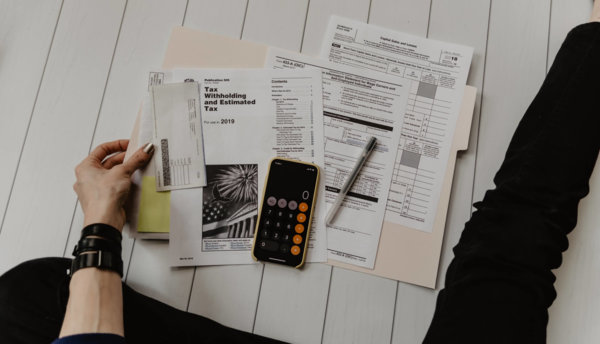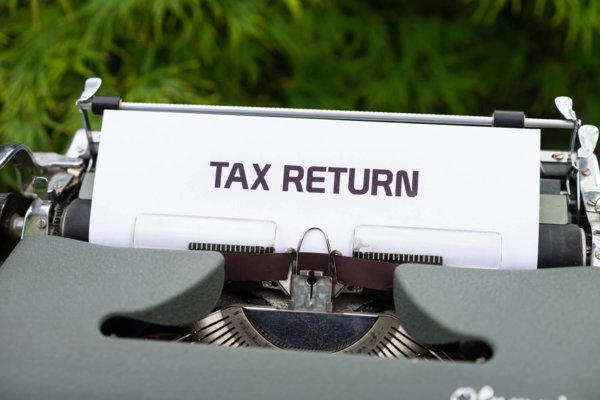How Long Should You Keep Tax Returns For?
Taxes. We all know them but they aren't exactly the most fun and interesting subject in the world! That being said, it is vital to keep on top of your taxes and have knowledge of your taxes to avoid any issues.
One element of taxes that is often overlooked is the maintenance of records such as your tax returns. With this in mind, we are going to be looking at how long you should keep hold of your tax returns, which might be particularly helpful if you are the type of person who is prone to keeping your paperwork boxed up in the attic.
We are also going to have a look at tax returns in general and how they work. Let's get started.
Also read: How Much Do You Understand Tax On Bonuses?
What Are Tax Returns?
A tax return is essentially a document that shows what you earned during a particular year and what deductions or allowances you made for yourself. It's important to note that these documents are not just used by the IRS (Internal Revenue Service) but other government agencies too.
For example, HMRC (Her Majesty's Revenue & Customs) in the United Kingdom uses tax returns to check whether or not an individual has paid their income tax correctly and accurately. The UK Government uses tax returns to help determine how much tax people owe and what deductions they may be eligible for. Tax returns can be very useful when trying to claim back money from the government.
They can also be used to show proof of certain expenses and deductions. This means that tax returns can be very beneficial for individuals who want to make sure they don't miss out on anything.
In the United States, tax returns are filed with the Internal Revenue Service (IRS). These are then sent to the state department where they are checked to see if there are any discrepancies between the information provided and the actual amount owed. If there are any errors, the IRS will send a notice about it to the taxpayer so that they can correct the issue.
Also read: The Guide To Futa Tax Rate 2020
How Do You File Tax Records?
Tax returns are usually filed electronically using software programs like TurboTax. There are many different types of tax returns available depending upon the kind of business you run and the type of financial situation you're in. Some of the more common ones include:
Also read: Internal Revenue Code (Irc) - Section 162
Individual Income Tax Return
This form is used when you are filing for personal income tax purposes.
Corporation Income Tax Return
This is the standard form used by companies to file their annual income tax returns.
Business Corporation Income Tax Return
This applies to businesses that operate under the laws of the US.
Partnership Income Tax Return
This type of return is used for partnerships.
Estate Tax Return
This is used to calculate the estate tax due on assets left behind after someone dies.
In addition to the above, some special forms are only used for specific situations. For example, there is a 1099-DIV form that is used to report dividends received from stocks and bonds. Another one is the 1040NR form which is used to report interest payments made on loans.
Also read: Your Ultimate Guide To Tax Preparation Costs

When Should I Start Filing My Tax Returns?
The best time to start filing your tax returns is when you first receive your W2s (Wage Statements). As soon as you get them, make sure you complete all of the necessary fields. Make sure that you have all of your receipts and records ready to go.
Once you've completed this process, you should immediately file your tax returns. However, you'll need to wait until April 15th before you submit them. This is because the IRS requires at least three months to prepare and audit your taxes.
During this period, the IRS checks to ensure that everything is accurate and up to date. After this point, the IRS will send you a letter telling you that your tax returns were processed successfully. At this stage, you'll receive a copy of your tax return along with a statement showing the total amount of money you owe.
Also read: How Do I File Taxes For Work Done For An International Company
Keeping Your Tax Returns Safe
The first thing that you need to do when filing your tax returns ensures that you store them safely. You don't want to lose your tax returns because you didn't take precautions to protect them.
As mentioned earlier, tax returns are extremely valuable and can be used to prove things like deductions and allowances. Therefore, you must keep them safe. You could even consider storing them in a fireproof box to ensure that they remain protected. However, if you are worried about theft, you could always opt for something more secure.
A good option would be to purchase a fireproof filing cabinet. This way, you can ensure that your tax returns are kept safe without having to worry about losing them.
When Should I File My Tax Returns?
One of the main reasons why you should file your tax returns early is because you don't want to pay late fees. There are penalties associated with paying late which include fines and interest charges.
Although some states allow taxpayers to pay their taxes online, others require you to physically visit a local office. By doing this, you can save time and effort and avoid paying late fees. Another reason why you should file your taxes early is that you will want to avoid missing deadlines.
Some states have specific deadlines that must be met before the end of the year. Failing to meet these deadlines could result in penalties being imposed against you.
How Long Should You Keep Your Tax Returns?
It is recommended that you keep your tax returns for at least three years after the financial year ends. This is because the IRS requires you to provide them with copies of all of your tax returns. If you fail to provide them with these copies, you could face serious consequences. For example, you might find yourself facing criminal charges. This is why it is best to keep your tax returns for as long as possible.

What Tax Records Should Be Kept?
You should keep records of everything related to your business. This includes invoices, receipts, bank statements, etc. When filing your tax returns, you will need to provide all of this documentation.
Without it, you won't be able to complete your tax returns properly. Even though you can use software to prepare your tax returns, you still need to know exactly what was spent and what was received. Therefore, you need to keep track of every single transaction.
How To Store Your Tax Returns
If you decide to store your tax returns, you need to choose somewhere safe. Ideally, you shouldn't put them anywhere near the house because thieves can easily access them. Instead, you should keep them in a locked room or under lock and key. It is also important that you make sure that no one else has access to them.
How To Safely Dispose of Old Tax Returns
There are several ways in which you can dispose of old tax returns. One of the most common methods is by shredding them. Shredding involves tearing up documents into small pieces. This prevents anyone from reading the information on the document. You can also burn them or throw them away in the trash.
Final Thoughts
When it comes to maintaining your tax return records, hopefully, this article has given you an insight as to how long you need to maintain them, how to safely store them and how to get rid of any particularly old records. As mentioned earlier, there are many different types of records that you may need to keep. However, if you follow the guidelines provided above, then you'll be fine!
If you need to generate a paystub, why don't you give our paystub generator a try?
 Our customer support is available 24/7:
Our customer support is available 24/7:

